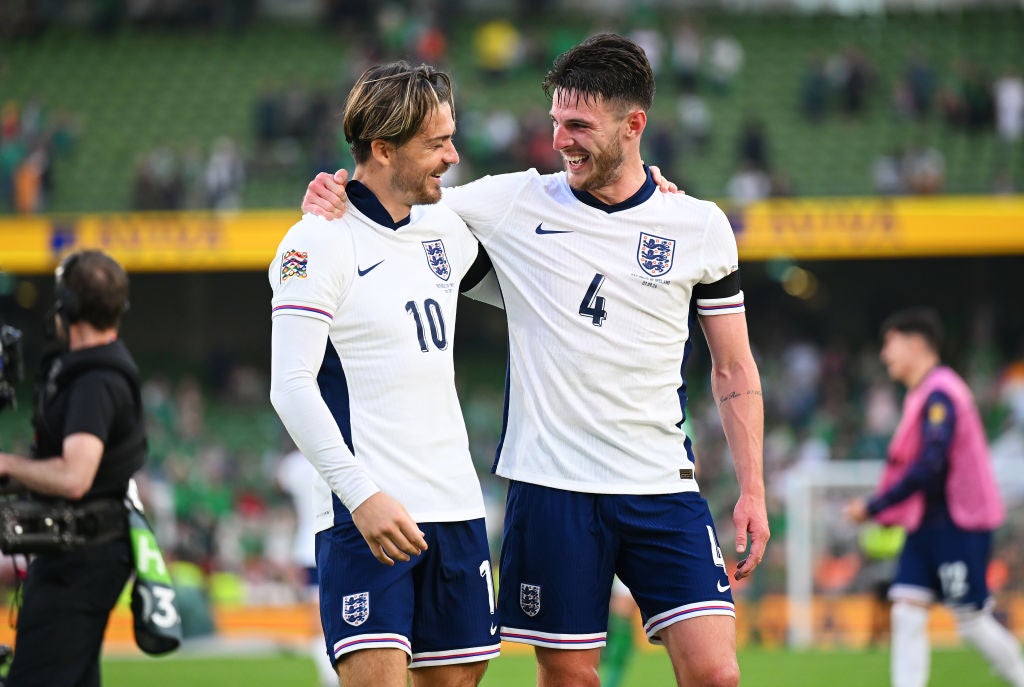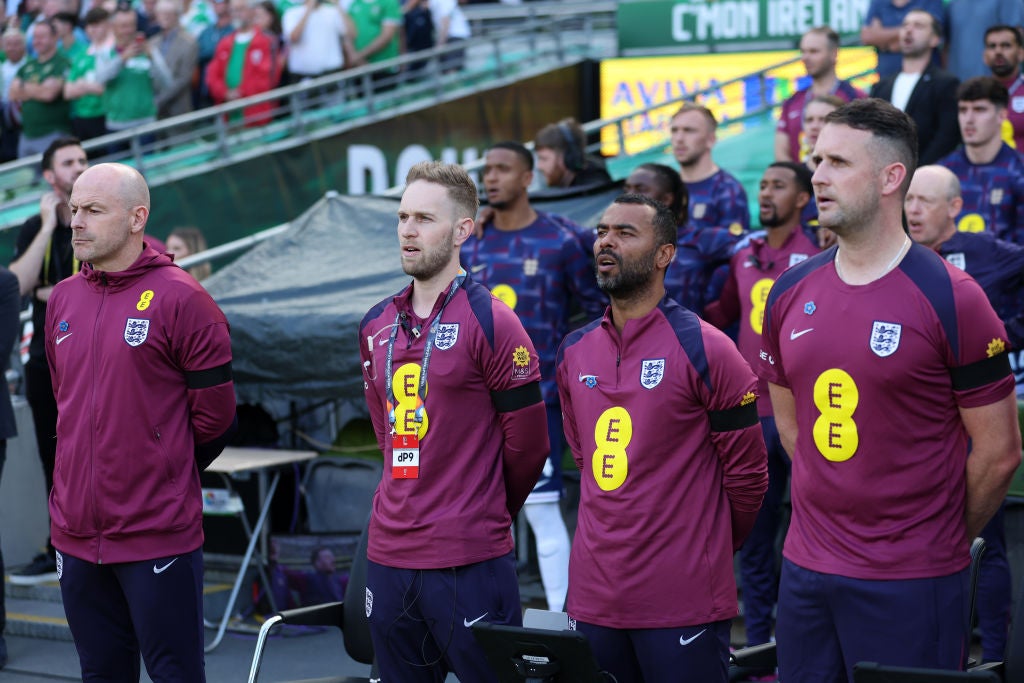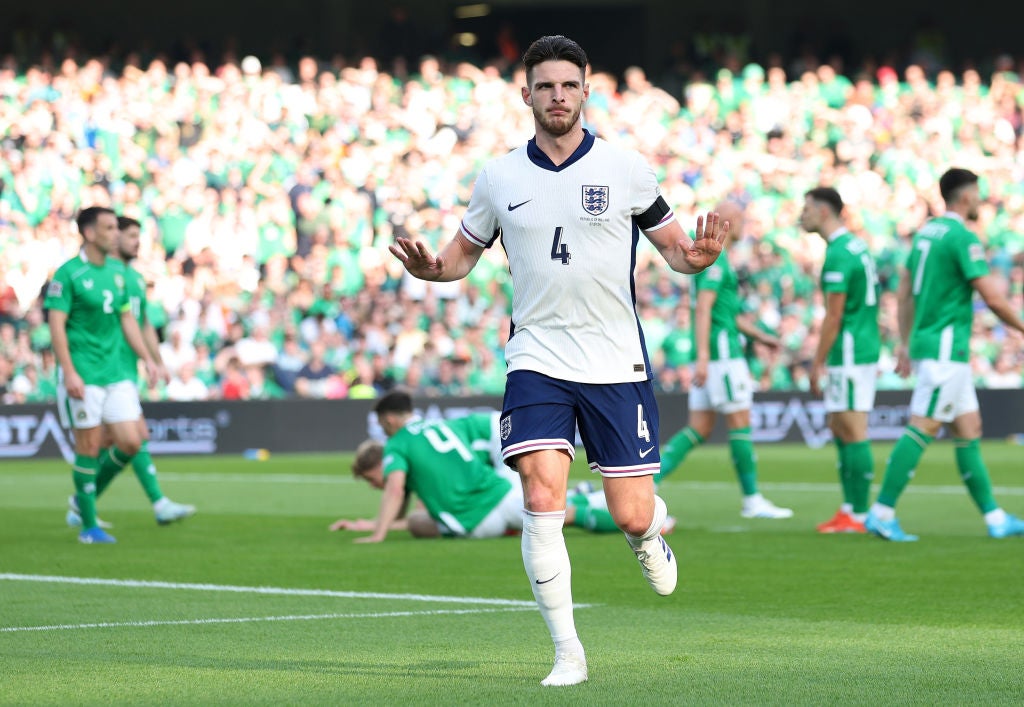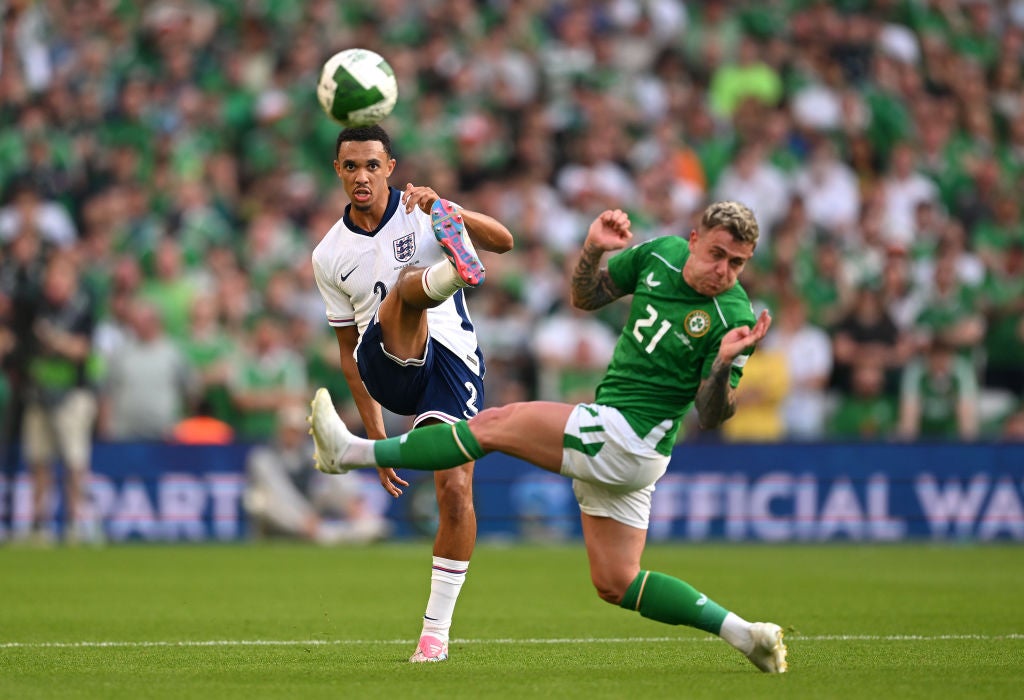After all the focus on the soundtrack, Lee Carsley’s first game as England manager was certainly loaded with narrative. The inevitable line is that you couldn’t script this but, well, it’s really the first thing you’d script.
Declan Rice and Jack Grealish scored the goals in a 2-0 England win over Ireland, the national team they both left, to also overcome a constant chorus of boos. If anything, such a response seemed counterproductive and drove them on, in the way that often happens. At least for a time. This win really just evolved into the sort of win over a smaller country that England have long learned to expect under Gareth Southgate, albeit with one important twist. The attacking under Carsley was different throughout and, for a brief period, quite exciting. There was a sense of evolution.
Any sense of competitiveness in this briefly feisty match dissipated with Rice’s superbly taken opening goal. After that, other than trying to discern the nice patterns and the differences to Southgate, it turned into one of those occasions where people will mostly be talking about all of the colour around it. And colour there certainly was.

After a week of build-up about Rice and Grealish, and so many identity discussions given that Carsley’s first game was against the country he represented as a player, there was an otherwise forgettable admission that brought all this to a head. Carsley very reasonably stated he doesn’t sing national anthems because he finds himself too focused on the football. A somewhat inexplicable media storm ensured that most of the attention was on him in the moments before the game, only for the new manager to try and go to the home dug-out.
This little punchline was layered by the fact Ireland had been so intent on securing Carsley for precisely that role. A prankster then had to be pulled away from the England team line-up, which only added to the sense of pantomime about it all. That certainly escalated when God Save the King was booed, the Irish crowd much louder than Carsley, who stood there watching on in the way he said he would.

He no doubt ignored the Irish banner that had “the snakes are back”, with the images of Rice and Grealish, if he saw it at all. Ireland did start sharply under their own new manager in the Icelandic Heimir Hallgrimsson. That was no doubt driven by the emotion of a fervent crowd but, as often happens in such situations, feeling can’t really counter quality for long. Even Grealish quickly got over an early abrasive challenge and all the boos to suddenly cut through the Irish defensive structure on a few occasions.
This was an immediate foreshadowing of how the game would go. Hallgrímsson’s preparation for the game had focused on making Ireland tough to play against and keeping a clean sheet but the five-man backline soon just left acres of the pitch to English movement, while offering up a lot of space inside.
Rice was only too willing to surge into it. After Anthony Gordon had been put through for England’s first big chance of the game, a fine Caoimhin Keller save was worked back to Harry Kane. He couldn’t quite get a proper connection but Rice did. The midfielder absolutely powered the ball into the roof of the net, as if distilling a few years’ worth of having to take criticism for accepting three caps for Ireland and switching to England. Rice motioned with his hands to play down the celebration, but the away fans didn’t care, and it didn’t have much effect on the home fans. The midfielder then showed what’s what by just careering through the Irish midfield.


This was a level of play way beyond Hallgrimsson’s squad. That was displayed with an even better team move for the second, which of course culminated in Rice playing it to Grealish for a supreme finish into the corner. Kelleher and Ireland didn’t have a chance, as the moment was charged with so much narrative.
If it’s harsh to say that was the type of goal that England didn’t really score under Southgate, it is true this was different. The most obvious difference was the positional movement of the players, and how they seemed less restricted than under Southgate.
This was what was most relevant about the game, of course. Enthralling as so much of the colour was, what actually matters is what it means for England going forward. And they did indeed go forward in this match with more mobility.
Most relevant to that was perhaps what happened for the first goal. Trent Alexander-Arnold got onto the ball and played a perceptive pass through for Gordon.

This was maybe the greatest sign of change, which is logical since the Liverpool wing-back became one of the great cyphers for all of the debates about Southgate’s approach. If that was often harsh, it was no doubt true that Carsley’s predecessor had a more fixed idea about what a right-back should do and where he should be. It didn’t really fit with Alexander-Arnold’s game. This did. Alexander-Arnold was given the licence to so often drift into the midfield and play, in exactly the way we’ve seen with right-backs in Pep Guardiola teams.
This, of course, is what the Football Association wants above anything else. It certainly doesn’t want to have discussions about singing anthems or player identity issues in politically loaded subjects.
After all that, though, Carsley ultimately got what he wanted out of this. It’s an opening win, and signs of progress. Plenty of narrative, not too much drama by the end.
